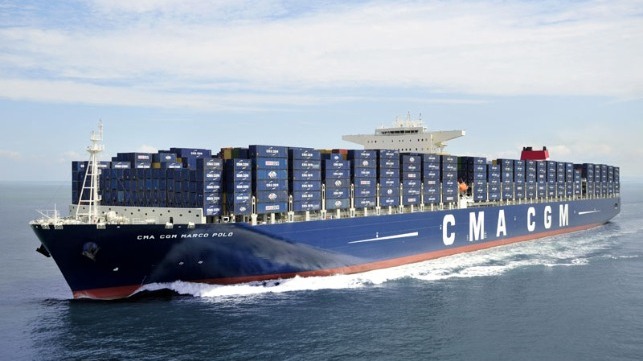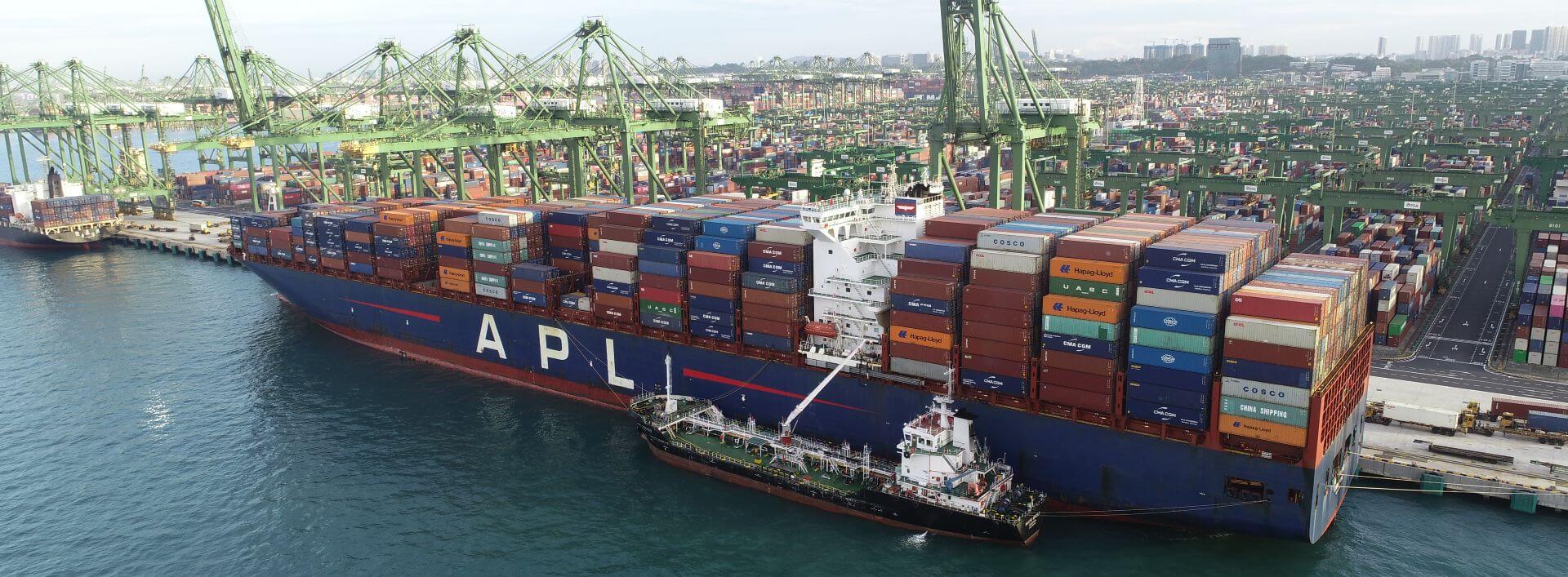CMA CGM to Test Biofuel on 32 Containerships for the Next Six Months

A range of shipowners have tested the use of biofuels on a limited basis on their fleets, but in the latest development, French giant CMA CGM Group is starting a wide-reaching, six-month test involving multiple trade routes. The purpose of the program is to collect more extensive data to be shared with flag administrators to support the broader adoption of biofuel as an element in the effort to achieve the net zero carbon targets.
The six-month global trial will involve up to 32 containerships running on different blends of biofuel to measure carbon dioxide (CO2) and nitrogen oxide (NOx) emissions to obtain a trend analysis. Ranging from ship sizes between 2,200 and 10,640 TEUs, these vessels on trial will serve several trade lanes including Asia-South America, Asia-Africa, Asia-Oceania, Asia-Mediterranean, North Europe–Oceania and North Europe-North America.
“This global biofuel trial and bunkering in Singapore advances CMA CGM’s energy transition, paving the way for biofuel to scale up as one of the solutions to decarbonize shipping,” said Stéphane Courquin, Chief Executive Officer of CMA CGM Asia Pacific. “With the use of biofuels being assessed over multiple key trade lanes and onboard ships of various sizes, we shall gather a comprehensive data set to verify the biofuel’s performance as a marine fuel and gain insights into facilitating a wider adoption of biofuel as a clean fuel.”
With the support of the Maritime and Port Authority of Singapore, CMA CGM reports the program started with its 10,640 TEU vessel, APL Paris, which was the first of the group’s vessels to be bunkered with biofuel in Singapore on February 23. Ship-to-containership biofuel bunkering was conducted alongside simultaneous container loading and discharging operations before the 131,000 dwt vessel departed for Shanghai. This vessel operates on an Asia-South America route.

APL Paris was the first to load the biofuel blend (CMA CGM)
Made from used cooking oil collected from food manufacturers, F&B businesses and households, the conversion of waste cooking oil into biofuel for transportation promotes a circular economy. Some of these vessels fueling in Singapore will be loaded with B24 biofuel, which is comprised of 24 percent used cooking oil methyl ester in the advanced biofuel blended with conventional fuels.
The advantage of B24 is that it is completely compatible with modern ship engines. As a “drop-in” fuel option, it can be run on all vessel types without requiring technical, safety, or design adjustments. According to CMA CGM, B24 can reduce carbon emissions by 21 percent.
As part of the trial program, CMA CGM plans to build a database comparing the results and the biofuel’s impact on the operation of the ships. They will share the results with the respective flag administration, including MPA, and believe that this can support the adoption of biofuel while also providing a new and environmentally beneficial use for consumed oil.
The shipping company notes that biofuels can provide an immediate means to reduce carbon exhaust, especially for older, in-service vessels that are not outfitted with new engines. CMA CGM currently has a fleet of 25 “e-methane ready” vessels in service based on its current investments in dual-fuel vessels using liquified natural gas as their primary fuel. By the end of 2024, CMA CGM will have 44 of these dual-fuel vessels, and the engine installed on these vessels is capable of using BioLNG as the next generation fuel becomes available.
